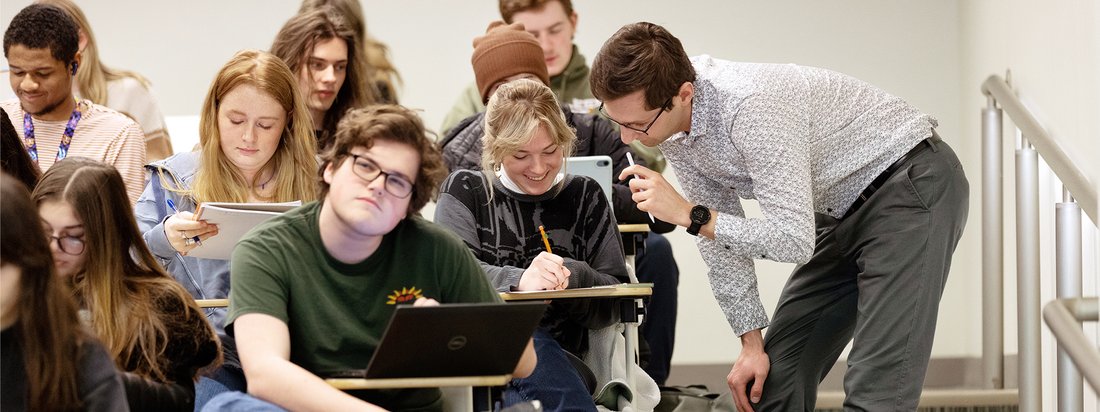
College of Arts and Sciences
Curriculum
After taking preliminary course requirements for your mathematics major, take upper-division courses across the following areas: analysis, algebra, finite mathematics, applied analysis, probability and statistics.
- Demonstrate facility with the techniques of single and multivariable calculus and linear algebra.
- Effectively communicate mathematical ideas.
- Make accurate calculations by hand and with technological assistance.
- Reproduce essential assumptions, definitions, examples and statements of important theorems.
- Describe the logical structure of the standard proof formats, reproduce the underlying ideas of the proofs of basic theorems and create simple original proofs.
- Solve problems using advanced undergraduate methods from one of the core areas of pure mathematics: algebra, analysis and probability.
The B.A. and B.S. in mathematics both provide strong mathematical training and coursework. The B.A. is more flexible and is recommended for students who wish to combine their mathematics major with other major(s). The B.S. is more rigorous and thus well-suited for students who will seek further education in mathematics beyond the undergraduate level and/or pursue careers in areas that rely heavily on mathematical skills and thought, like physics or finance.
- Introduction to Abstract Algebra
- Partial Differential Equations and Fourier Series
- Introduction to Stochastic Processes
- Numerical Methods with Programming
- Advanced Calculus
Extracurricular Opportunities
Pi Mu Epsilon
Pi Mu Epsilon is the national mathematics honorary society. Founded in 1914 at Syracuse University, PME currently has over 350 chapters at colleges and universities throughout the United States. The purpose of the society is to promote mathematical activities among students.
Directed Reading Program
The Directed Reading Program pairs undergraduate students with graduate mentors for a semester-long reading project.
Research Areas
In the Department of Mathematics, you will learn from and have the opportunity to conduct research alongside faculty with expertise across a range of areas. Current research groups focus on algebra, analysis, applied mathematics, combinatorics, geometry, topology, mathematics education, probability and statistics.
Learn more about this program

